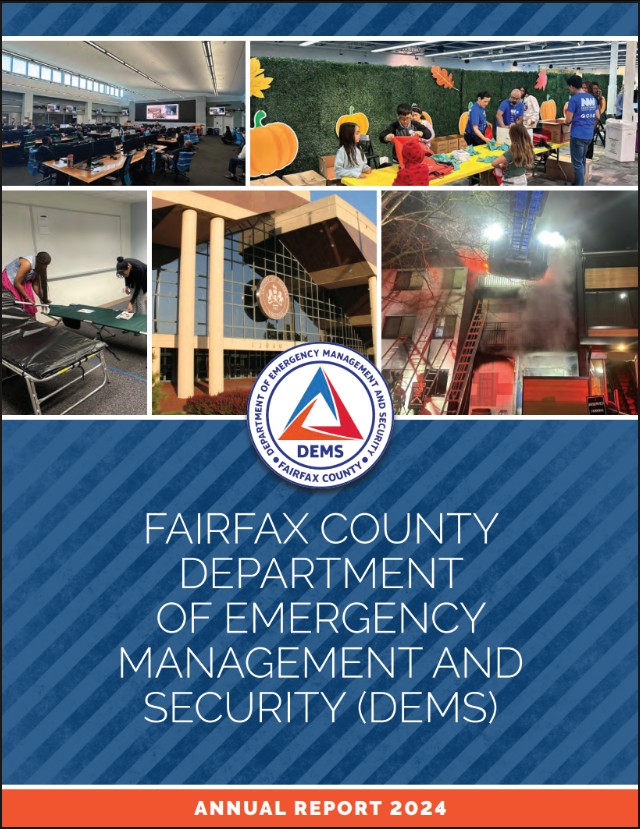Established in 2004 as a stand-alone agency, the Fairfax County Department of Emergency Management and Security (DEMS) coordinates county planning, response, support and recovery efforts before, during and after large-scale events and emergencies. In 2021, the Fairfax County Office of Emergency Management (OEM) was reorganized into DEMS. As DEMS has grown, so have the roles, responsibilities and commitment of the staff. The agency is responsible for developing and implementing county-wide programs and projects that promote disaster planning, training, mitigation, response, prevention and recovery for all-hazards, as well as, coordinating countywide security services to include access and entry, private building security, and building surveillance. The agency not only manages two EOC sites but also coordinates numerous local and regional projects involving local, state, regional, and federal partners.
DEMS falls under the direction of the deputy county executive for Public Safety and Planning. The county executive serves as the emergency management director. The Fairfax County Board of Supervisors appoint the emergency management coordinator to manage the day-to-day activities of the Department of Emergency Management and Security. This position carries full authority to carry out all assigned aspects of the emergency management program.
Mission StatementWe are committed to the safety and wellbeing of our community, employees, and visitors and strive to improve resiliency through comprehensive emergency management and security practices.
Vision StatementTo build a safer, stronger and more resilient community by fostering a culture of protection, prevention, mitigation, response and recovery.
Core ValuesCoordination – Effective collaboration and communication to enhance our partnerships to achieve positive outcomes in prevention, protection, mitigation, response, and recovery initiatives.Equity – Include the whole community to advance access to opportunities and outcomes.
Excellence – Lead the way through continuous improvement to create a culture of preparedness, innovation, and leadership.
Integrity – Maintain the highest level of professionalism, accountability, and stewardship.
Resilient – Strengthen the ability to withstand, respond to, and recover from incidents and events.
Responsive – Adapt to new challenges and proactively identify, mitigate, and take appropriate actions to address threats and hazards.


